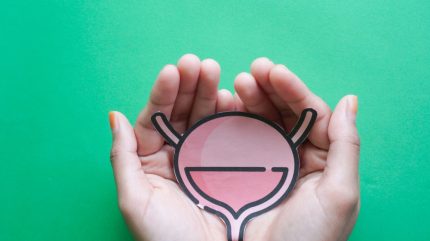
Astellas Pharma subsidiary, iota Biosciences, has won an investigational device exemption (IDE) from the US Food and Drug Administration (FDA) to conduct a trial evaluating its implantable device for the treatment of underactive bladder.
The IDE is for an early feasibility study to test the device in patients with the voiding disorder that affects 28% of men over 50 with lower urinary tract symptoms and 45% of older women. According to iota, the FDA has given approval for the study which allows a portion of the trial to start whilst outstanding questions are answered concurrently with enrolment.

Discover B2B Marketing That Performs
Combine business intelligence and editorial excellence to reach engaged professionals across 36 leading media platforms.
The first stage of iota’s study will include three participants, with at least one male and one female. Following successful safety outcomes from Stage 1, the FDA greenlit the study’s expansion to a total of 10 participants.
Iota has remained quiet on its technology, revealing only that it is a device designed to deliver electrical stimulation directly to the bladder wall to induce muscular contractions, helping bladder emptying. Underactive bladder, also known as detrusor underactivity, occurs when the bladder contracts with reduced strength and duration, resulting in an inability to fully empty.
The company’s CEO Michel Maharbiz said his team has “diligently worked on a potential alternative treatment option” to current approaches which often rely on clean intermittent catheterisation. Clean intermittent catheterisation works by draining liquid from the bladder via the urethra.
“We are excited to advance clinical development and bring this potential new solution closer to those in need,” he added.

US Tariffs are shifting - will you react or anticipate?
Don’t let policy changes catch you off guard. Stay proactive with real-time data and expert analysis.
By GlobalDataAstellas acquired iota Biosciences in a $304m deal in 2020 to add bioelectronic medical implants to its portfolio of prescription drugs. At the time, iota’s development of grain-sized neural dust devices was attracting a lot of attention. The company’s ultrasound-powered technology, conceived at UC Berkeley, does not require batteries, meaning devices can be implanted via less-invasive procedures in areas of the body inaccessible with currently available products. Alongside bladder disorders, iota has honed in on autoimmune diseases, cancer, and neural disorders.
The neuromodulation market is expanding rapidly as technology advances, making the approach a viable alternative to current procedures and pharmaceutical intervention. A market model by GlobalData estimates the global neuromodulation device market will be worth $11.4bn by 2033, up from $6bn in 2022.





